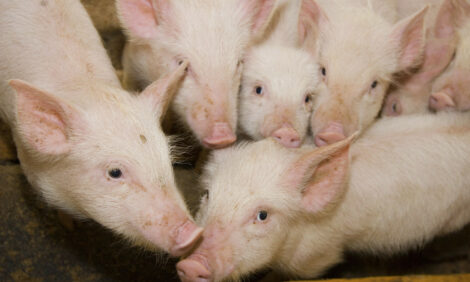



Limiting Access to Canadian Pigs a Potential Threat
CANADA - The Canadian Pork Council warns limiting the ability of U.S. processing plants to access Canadian origin pigs could force some of those plants to close their doors, writes Bruce Cochrane. Under Mandatory U.S. Country of Origin Labelling U.S. processing plants that source pigs born in both Canada and the U.S. are free to use a dual country of origin label.
However there has been pressure to require the segregation of U.S. born and raised animals from animals born in Canada and raised in the U.S.
CPC executive director Martin Rice says, while Canadian producers have depended on American processors, those U.S. processors have been equally dependent on Canadian origin pigs.
Martin Rice-Canadian Pork Council
About a third of Canadian born swine would be exported as live animals to the United States, a little less than a third but it's been growing.
Within that group, three quarters to 80 percent would be going down as feeder pigs so we could say this has relevance to a good third of our live hog production.
Now on the U.S. processor side approximately 10 percent of U.S. hog processing is of animals that are born in Canada.
The majority, the vast majority are feeder pigs that are raised in the U.S. but there's also some slaughter animals as well including a major amount of our sows and boars.
So 10 percent is very significant.
Five percent is very significant in terms of processing capacity going unused so I think that there would be some major questions here about plants staying open if they can't access the Canadian born pigs or if the markets are putting on barriers to imports from Canada.
Rice notes the existing regulations allow the commingling of U.S. and Canadian born pigs and he doubts we'll see any changes until after the U.S. election.
Meanwhile he hopes people will come to recognize the rules as they currently apply will allow consumers who want to buy strictly American product to do so.








